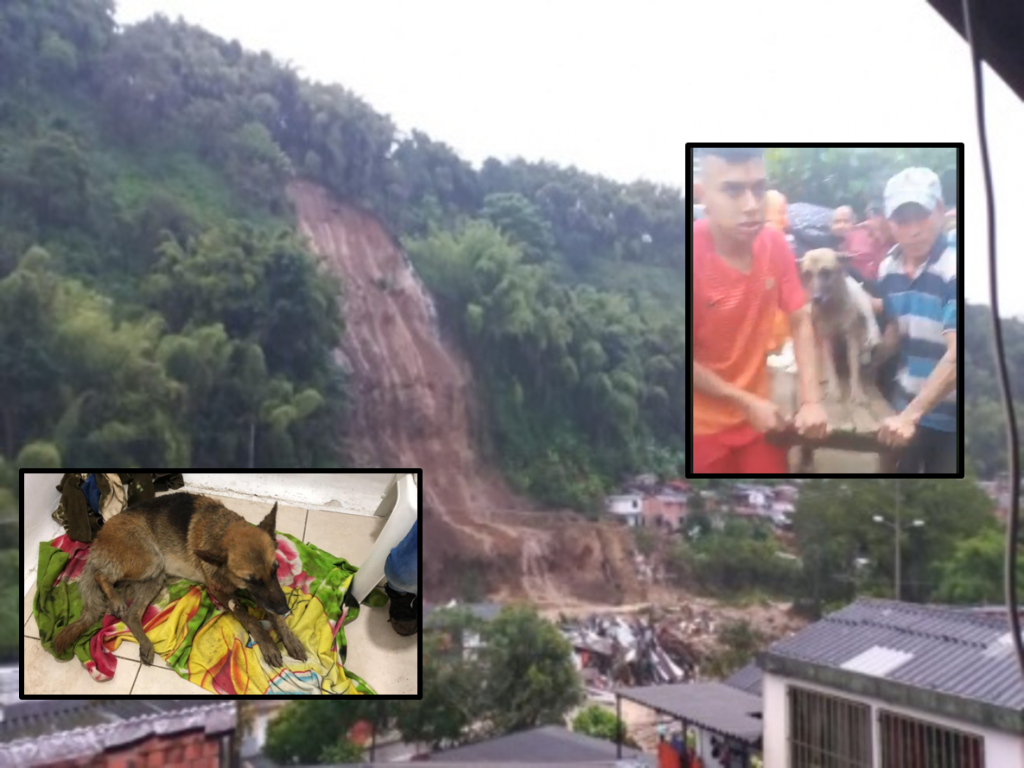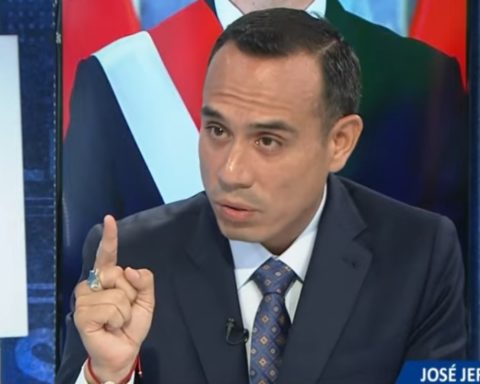The Xenophobia Barometer is a platform that systematizes, analyzes and disseminates as public information the result of the analysis of conversations on Twitter, web pages and the media about the migrant population. Its objective is to analyze the social imaginaries and the negative language that provokes or viralizes messages of hate and rejection online towards migrants.
This initiative arose from an alliance between The Right to Not Obey, a project of the Otraparte Corporation, the Observatory on Racism, Xenophobia and Hate of the Interpreta Foundation, and the Externado University of Colombia. In Chile, it has the participation of the Vives Center of the Alberto Hurtado University.
To carry out the studies, the analysis of big data of public information is used through the Consumer Research platform of Brandwatch, a leading “social listening” company worldwide that has the rights to analyze everything that is broadcast on the internet. Twitter public spaces. It is in this context that the migratory situation in northern Chile was analyzed.
Marked by the electoral contest, on September 25, a march was held in Iquique that brought together people who were against migrants and refugees who crossed the border through unauthorized crossings in Colchane. The demonstration had a media impact due to violent events that were unleashed in this context, such as the burning of belongings and tents of foreigners who lived on the street. That day, a total of 73,087 mentions of migration were recorded.
The groups that called the mobilization at that time demanded greater control over irregular migration and found the migration policies adopted by the government insufficient, calling directly on the authorities to take charge of this problem. This could also be evidenced through Twitter, a space where mentions of migration increased by 7,054% compared to the average for that month, according to data from the Xenophobia Barometer. Despite the acts of violence and the media coverage they were, the government did not take more relevant measures and the conversation gradually decreased.
However, on January 25, another event caused social networks to explode again: a group of Venezuelan migrants beat a carabinero in Iquique and a video recording the event quickly went viral on social networks. Between January 25 and February 1, a total of 266,899 mentions of migration were recorded, which represents an increase of 449% compared to the week prior to the event.

Unlike previous years, where it has been seen that mentions of the migration crisis were mainly aimed at Colombians and Haitians, during 2021 and so far in 2022 the trend was more directed at Venezuelan citizens. This group took 60% of the total mentions regarding migration between January 1, 2021 and February 1, 2022.

This figure is directly related to the increase in Venezuelan citizens who have entered the country through unauthorized steps during the last year, in a context of restrictive measures (new conditions for visas) and border closures. In this context, and according to the UN Refugee Agency (UNHCR), 21 migrant deaths were recorded at border crossings.
In the following image you can see the most used hashtags in the last month. Among the most mentioned, #Venezuelans and #noesinmigracionesinvasion are the ones that stand out the most, totaling 24,749 messages. Other hashtags among the most used and that show an anti-immigration sentiment are #nomasinmigrantes and #immigracionillegaldesatada.

The migration crisis in the north of the country is a reality on an international scale that is also reflected in other border cities in South America. More than 6 million Venezuelans have been forced to leave their country as refugees and, in this context, the rest of the Latin American governments have failed to deliver a satisfactory response to address and channel the strong migratory flow of the Caribbean country. The Chilean government has imposed increased visa requirements for Venezuelans and rarely recognizes their refugee status. Tension in areas like Iquique has been increasing throughout the year, and situations like the one that occurred in the north of the country become inevitable without adequate government intervention.
As can be inferred from the article “Humanitarian rhetoric and expulsion: Haitian migrants and migratory governance in Chile”, by Fernanda Stang, Antonio Lara and Marcos Andrade, the great problem caused by the government’s inaction is that it ends up encouraging migrants and refugees to occupy spaces to spend the night and pushes them to irregular work or to commit illicit acts as a last resort to be able to survive, given the impossibility of accessing formal jobs due to their irregular migratory status and the practically null acceptance of refugee requests.
The aforementioned situation can be reflected in the decision of the Undersecretary of the Interior, Juan Francisco Galli, to order an end to all public service procedures in the offices of 54 provincial governments, including those of Arica and Tarapacá. In this sense, and according to the American organization Fighting Hate for Good, the feeling of abandonment by citizens in the face of a lack of public policies encourages the emergence of anti-immigrant organizations and groups. This is explained because if prejudices based on stereotypes are accepted by government institutions as normal, “the result is that behaviors at the next level are more accepted.” The above is what could be observed on September 25, when the government did not reject the attacks on migrants.
The voice of the political world
As can be evidenced through the increase in the volume of publications on migration from this fact, the attack against the carabineros had repercussions on a full scale: unions of workers paralyzed their functions due to the increase in violence that they denounce in the region. and politicians from different sectors expressed their opinion regarding what is happening in the country.

The mayor of Recoleta, Daniel Jadue, attributes political responsibility for the migration crisis to President Sebastián Piñera.

Former far-right presidential candidate José Antonio Kast called on the new government not to continue with “ambiguity” on the migration issue and to close the borders even more.


The Republican Party was a protagonist in the marches and calls and demanded that the authorities enforce the law and called for carrying out the ditch promised by the former presidential candidate, José Antonio Kast, who was previously president of his party.

The deputy of the Broad Front Diego Ibañez also criticizes the inaction of the government of Sebastián Piñera to respond to the migration crisis.

Marco Enríquez-Ominami also criticizes Piñera, and also points out that the problem “is not migration, it is an absent government.”
These opinions of the political world -which mainly point to a responsibility of the government and of President Sebastián Piñera- were, however, rejected by the Minister of the Interior, Rodrigo Delgado. East, attributed the crisis in the north to the opposition for not approving certain articles of the Immigration Law promulgated by Piñera, which allowed the “redirection” of migrants who entered through illegal steps to the country from which they came.
Another aspect in which the government failed was to combat violence, both physical and verbal, against migrants. The inter-American principles on the human rights of all migrants, refugees, stateless persons, and victims of human trafficking highlight “the importance of combating all forms of incitement to hatred, violence, criminalization, discrimination, racism , xenophobia and other related forms of intolerance against migrants, regardless of their migration status”.
According to what is stated in the article “Migration, fears and media in the presidential election in Chile”, by Lucía Dammert and Matthias Erlandsen, it is important to depoliticize migration, de-instrumentalizing it, since, without a doubt, the media populism of the current government, but especially the electoral scene, they sharpened the positions and the speeches. We need authorities and politicians who are responsible in their speeches, and we must avoid punitive populism which, although it is electorally profitable, is very harmful to coexistence
Xenophobia and discrimination: the other side of the migration crisis
In addition to the obvious daily problems caused by the increase in migratory flows in Iquique, at times like this there is also an increase in xenophobia and discrimination against refugees and migrants. Between January 2021 and February 1, 2022, a total of 91,944 openly discriminatory mentions against migrant populations were recorded. 61% of them are class type discrimination, 23% are cultural type and 16% are racial type.




Although this type of discrimination does not represent a significant percentage of the total mentions of migration (2%) during the period studied, the total amount (more than 91 thousand) is, without a doubt, worrying. If one observes what type of discrimination is most associated with each of the nationalities, it can be found that the mentions against Venezuelans, Haitians or Bolivians are predominantly classist; while in the case of Peruvians and Ecuadorians, there is a higher percentage of racial discrimination.

However, there is also another type of discrimination that is much more subtle, but could be just as violent. Many of the posts that were not categorized as overtly discriminatory may also contain some implicit xenophobia or racism. These three categories are certainly ideal types that are often intersectingly combined and their limits can be fuzzy, but they are also often communicated with euphemisms that are difficult for the constructed search algorithms to capture.
Some examples of this type of discrimination are:


One of the first responsibilities of the incoming government will be to try to find solutions that can ease both the lives of the people of Iquique, as well as that of the migrants who are arriving in that city. The challenge is to transform migration into a safe experience for the Chilean community, but also for those who arrive, encouraging regularity and entry through authorized steps.
In that sense and observing his government program, what can be expected from Gabriel Boric’s mandate is a “registration of people who are in an irregular situation to start an evaluation of each case, taking into account the needs and capacities of the markets of local work and the international commitments that Chile has in terms of refuge and protection of children”. Another long-term oriented measure is also mentioned in the president-elect’s program, but it will probably be key in his relationship with the rest of the South American leaders. This consists of “developing national, bilateral and multilateral actions to face the multidimensionality of the humanitarian crises that occur in the region and its correlate in the processes of massive migration and refuge.” Migration is a transnational issue that must be addressed with a regional strategy.
In this regard, the United Nations High Commissioner for Human Rights (OHCHR) has proposed a series of objectives contained in the Global Compact for Safe, Orderly and Regular Migration, which seeks to address current problems related to migration. The purpose of this treaty is aimed at promoting favorable conditions that encourage migrants to be active members of the society in which they are inserted, transforming them into subjects of law.
In this sense and in accordance with what is established in the pact, the role of the incoming government will be fundamental in what will happen with the migration crisis in northern Chile. The executive will be responsible for establishing public policies that guarantee coexistence, access to rights and the participation of the new migrant communities in society.

















